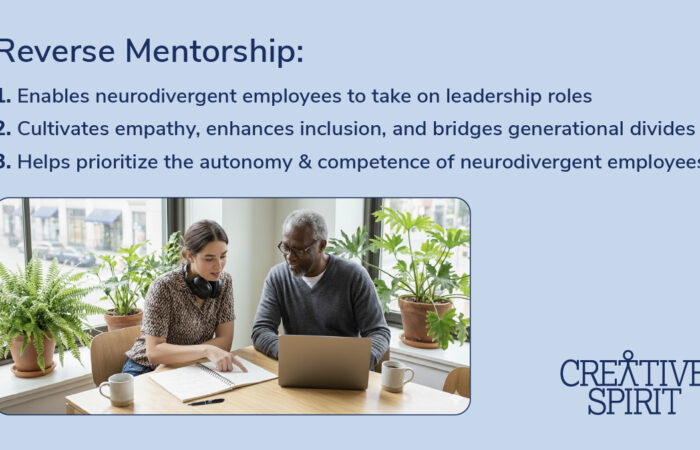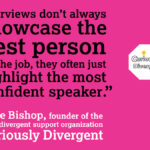By Menachem Rephun, Communications Manager, Creative Spirit
For millions of young adults, graduating from college is one of the most significant milestones and turning points in their lives. It’s a time in which the future can seem both exciting and intimidating, with a slew of questions: how will you support yourself financially? What career path will you decide on? Which career is the right one? For college graduates who have autism spectrum disorder (ASD), dyslexia, ADHD, or other neurodivergent conditions, the excitement is often countered by a different type of anxiety, and a very different set of questions: Should I disclose being neurodivergent? Will I have reasonable accommodations? Will I face bias or discrimination?
These are all valid concerns. Despite the specialized skills and talents of many neurodivergent young adults, the ableism and lack of reasonable accommodations that unfortunately still exist in many workplaces can make it feel like the odds are stacked against them. This exclusion has resulted in unemployment rates as high as 30 – 40% for people who are neurodivergent, according to research from CTE Policy Watch and other sources. For many neurodivergent students, graduating from college can often feel, to put it bluntly, like falling off a cliff. As Mema Mansouri writes for Neurodiverse Counseling, “the rhythm and predictability of academic life—deadlines, structured routines, and clear expectations—suddenly give way to an uncertain future. And that shift can feel like standing at the edge of a cliff without a clear path forward.” This raises the question: how do we prevent neurodivergent graduates from falling off that proverbial cliff?
Advocates and Experts Weigh In
To solve this problem and improve employment outcomes, educators and career advisors have weighed in with practical initiatives and strategies. Some have suggested that education is the answer, i.e., educating neurotypical employers and educators about neurodivergence. “To better serve this population, colleges and universities can take similar actions to what we’re doing in the employment realm,” Judy Reilly, Director of the Center for Neurodiversity and Employment Innovation at the University of Connecticut, suggested in a 2023 interview with Higher Ed Jobs.com. “We must educate people who serve and work alongside neurodivergent students, so that they know exactly what it is, how it presents, and what they can do differently. Faculty may also need to adjust content delivery formats and learning outcomes to account for all kinds of learners.” Reilly suggests that neurodivergent inclusion has been overlooked by colleges and universities due to the fact that neurodiversity is still in the early stages of building traction in equity and inclusion efforts. To help solve this issue, Reilly helped launch UConn’s University Council for Neurodiversity Employment, a coalition of over 50 colleges and universities from across the country. “UConn leads that council because we don’t just want to fix things on our campus,” she explained in the interview. “We’re committed to effecting change across colleges and universities.”
Hearing From Neurodivergent Jobseekers in Their Own Words
Of course, it’s extremely important to hear not only from experts, business leaders, and academics, but from neurodivergent individuals in their own words. In her essay ‘‘Why Autistic Adults Struggle With Employment”, Aaliyah Holt, a blogger on the autism spectrum, offers a moving appeal to employers to give those with autism and other forms of neurodivergence a chance. “Some of us struggle to find or hold down jobs,’’ Holt writes. ‘‘Some of us can’t be independent due to not being able to keep a job. Think about how happy we will be that you decided to make it work for us when no one else did. Think about it, solo/small game devs don’t have the tools that larger companies have, especially when it comes to promotion. Simply hiring someone to write articles promoting your game can really help you. You don’t have the large crew to help promote your game. Therefore it will be beneficial to hire freelance writers.’’ By rejecting narrow-mindedness in favor of being understanding and appreciative of neurodivergence, employers can see hugely beneficial results for their entire organization. Holt writes that, based on her own experience, the application and screening processes at many companies can be extremely alienating and confusing. ‘‘I applied to Walmart last year,’’ she writes. ‘‘Their application has the questionnaire. It even said I had to pass to be considered for the job. I didn’t know how to answer most of the questions and I did not pass the assessment. Therefore, they did not want me. If that’s the case, I can’t get hired at places that do assessments on their applications. Remember, neurotypicals don’t have the issues that we have.’’ Revising the application and screening process to be more accommodating for neurodivergent applicants is a crucial step to improving employment outcomes and inclusion for millions of job seekers.
Other advocates have also weighed in on how to support neurodivergent employment post-graduation. On her blog “Great Leap”, Laura McKenna, a journalist, professor, and expert in education, stresses that much greater awareness and advocacy are needed to raise awareness that the educational system is not sufficiently meeting the needs of neurodivergent college students, especially those on the autism spectrum. “Autism parents and nonprofits need to bang the drum on this problem and demand the media responsibly cover the poor college and employment outcomes for young adults with autism,” she writes. “I don’t want to watch news features that highlight one company that hires three autistic individuals. I want folks to understand the full scope of the autism unemployment problem. If people don’t talk about it, nobody will address the issues.”
Organizations That Are Making a Difference
In addition to experts, many organizations have stepped up to support fair-wage employment for neurodivergent young adults. One ambitious effort is being led by Neurodiversity Hub, which connects neurodivergent students with work experience, internships, and employment opportunities. Neurodiversity Hub explains that, based on their assessment, neurodivergent young adults are being failed in at least three key areas. The first is the lack of supportive pathways for successfully transitioning from secondary school and taking on the challenges of university and college. The second is a lack of infrastructure in place to ensure neurodivergent students succeed academically. The third key area is the need for more work experience opportunities so that neurodivergent students stack up favorably alongside those who are neurotypical. Neurodiversity Hub is tackling these issues with focused training programs, academic accommodations, assistive technologies, and flexible study arrangements.
TransitionsUSA.org, an organization dedicated to supporting young adults who are neurodivergent after high school, is another key contributor in enabling fair-wage employment for the neurodivergent community. For young adults with autism spectrum disorder (ASD), Transitions writes that some of the most supportive roles are in technology (i.e. web development and graphic design); industrial trades, such as mechanics, carpentry, and welding; data entry; accounting; and research positions, such as working as a lab technician. They also recommend various ideal roles for young adults with ADHD, including teaching and working with children; working as a journalist or copyeditor in a fast-paced, newsroom environment; hairstylist or aesthetician; or entrepreneur or small business owner. Of course, the capabilities of neurodivergent college graduates are not limited to these specific roles, but can encompass a wide range of fields and opportunities.
Creative Spirit is also actively working to be a part of the solution through our HireDifferent Academy. This comprehensive training program involves working with companies of all backgrounds one-on-one to help them become neurodiversity-certified, provide reasonable accommodations, and fully include employees who are neurodivergent in the workplace, including neurodivergent young adults who have recently graduated from college. Our goal is to expand hiring managers’ awareness and appreciation for neurodivergent skills, expertise, and talents, emphasizing that hiring neurodivergent employees drives innovation and benefits everyone in both the short and long term. We understand that having guidance and support is crucial to navigating employment after college. With that in mind, we provide personalized coaching and mentoring for neurodivergent individuals to help them identify their ideal career path and improve their confidence and self-advocacy skills.
When all is said and done, the truth is that, for the millions of students in the U.S. who are neurodivergent, graduating college should feel just as exciting and promising as it does for students who are neurotypical, rather than being dampened by the stress and anxiety of “falling off a cliff”. Career growth and success for neurodivergent young adults should feel achievable, rather than unattainable, becoming the rule, rather than the exception. With the right mindset, understanding, and tools, employers and educators have the ability to make that happen. In the words of Dr. Maureen Dunne, an expert in neurodiversity and CEO of Autism Community Ventures, “We’re at a point where there’s been enough progress in different programs and initiatives that with more collaboration, we can make significant progress, not just for graduation rates and student success, but employment outcomes.” Through our combined efforts, we can go beyond just preventing neurodivergent young adults from “falling off the cliff” after graduation, and actually empower and enable their success and career growth in both the long-term and today.
Sources:
Dunne, M. (2023). “Building the Neurodiversity Talent Pipeline for the Future of Work”, MIT Sloan Management Review. https://sloanreview.mit.edu/article/building-the-neurodiversity-talent-pipeline-for-the-future-of-work
Higher Ed Careers (2023). “Employment, Not Graduation, as an Outcome: How To Do Better by Neurodivergent Students”, HigherEd Jobs: Interviews. https://www.higheredjobs.com/HigherEdCareers/interviews.cfm?ID=3334
Holt, A. (2019). “Why autistic adults struggle with employment”, The Art of Autism Blog. https://the-art-of-autism.com/why-autistic-adults-struggle-with-employment/
Mansouri, M (2025). “Navigating Graduation Stress as a Neurodivergent Student”, Neurodiverse Counseling LLC. https://www.neurodiversecounselingllc.com/post/navigating-graduation-stress-as-a-neurodivergent-student
Mckenna, L. (2024). “Increase the Chances of Employment Success for Neurodiverse Young Adults”, A Great Leap. https://greatleap.substack.com/p/increase-the-chances-of-employment
Transition USA (2025). “Neurodivergent Coping Skills and Strategies for When Unexpected Change Arises”, Transitions USA Blog. https://transitionsusa.org/blog/neurodivergent-coping-skills/?gad_source=1&gad_campaignid=22709965116&gbraid=0AAAAADh21TbVFc0cwm0PvCaWlHQRPyzXS&gclid=CjwKCAjwlaTGBhANEiwAoRgXBTu99EXCrd8jHu1xjr24tbdkj_pcPP9OfH9Eb9_Ab48OUW2z7blZzxoCPzAQAvD_BwE







